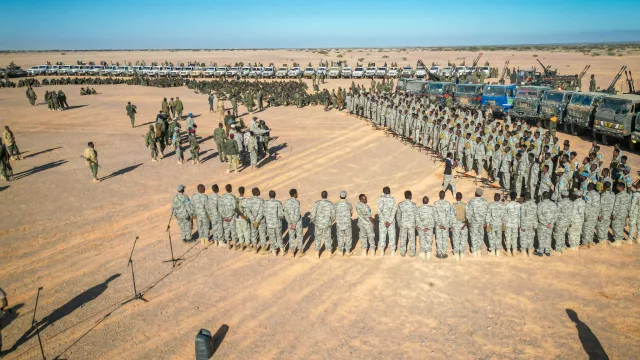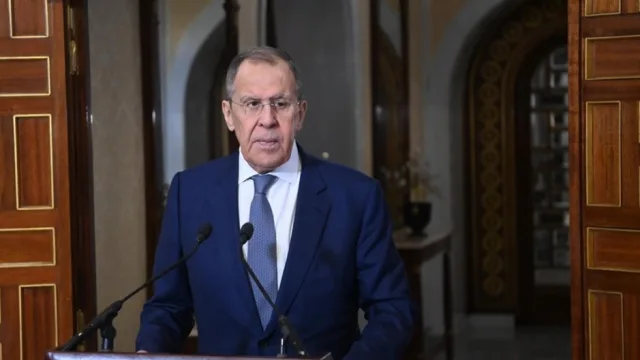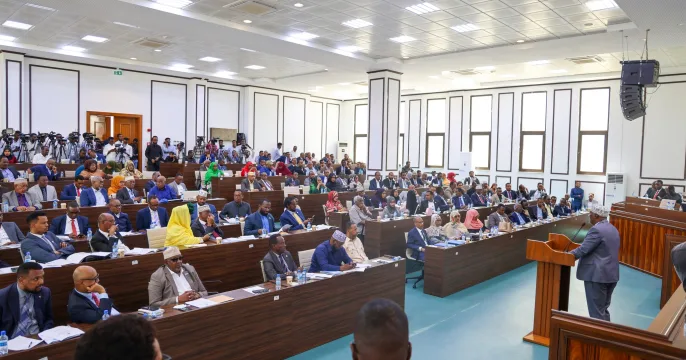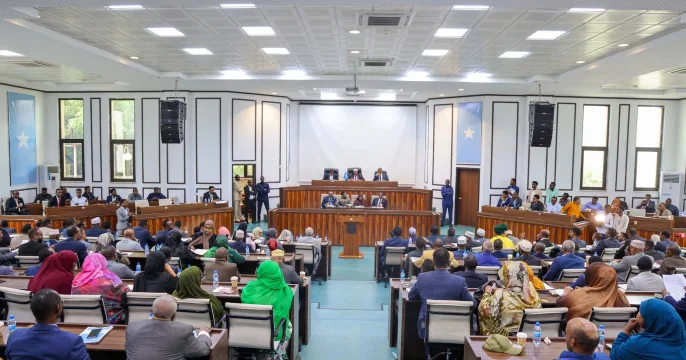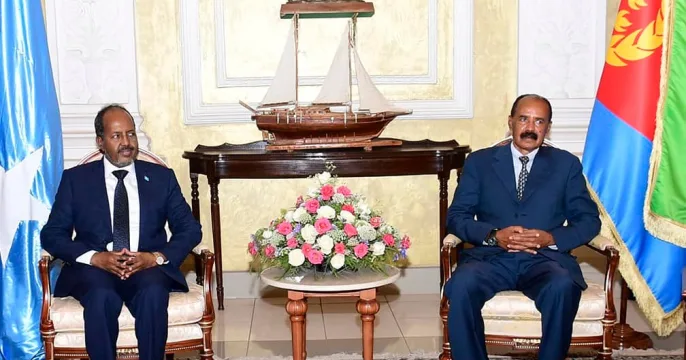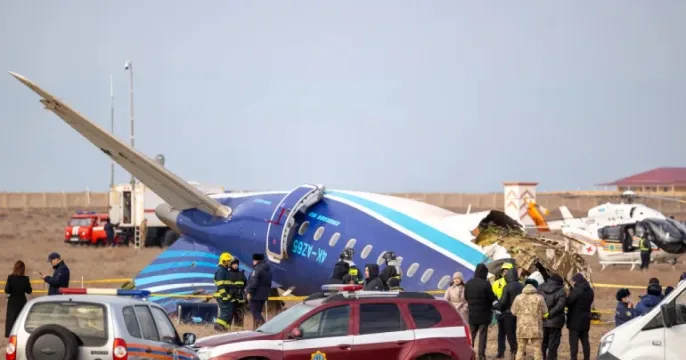We, the owners of African media organizations met at the Fourth African Media Leaders Forum (AMLF)…

We, the owners of African media organizations met at the Fourth African Media Leaders Forum (AMLF) in Tunis, Tunisia, during November 10-11, 2011, to discuss the state of Africa’s media sector, and work collaboratively to strengthen and develop Africa’s media industries for economic, political, social, and cultural change.
With nearly 350 participants from 48 African countries, the Tunis meeting was a landmark and the largest and only gathering of media owners and operators representing the African continent. Since launching the AMLF in Dakar, Senegal, in 2008, both the AMLF – and its parent body, the African Media Initiative (AMI) – have grown in scope, stature, and expanse of operations, united by the common purpose of creating ethical, sustainable, diverse and pluralistic African media.
Aware that the African continent is at the cusp of a promising economic transformation, and as demonstrated by the Arab Spring that was born in Tunis, media have a profound role to play in social transformation, giving voice to people, and promoting freedom. Taken together, these developments hold out the promise of greater participation by citizens and increased pluralism.
Cognizant of the need for us to work together to strengthen the media sector as a partner in development and viable platform for investment, we therefore commit ourselves to becoming a more integral part of Africa’s development success story by expanding coverage of development topics, placing people at the center of our reporting, and focusing our effort toward changing Africa’s stereotypical narrative of death, disease, disaster and despair into one of hope, innovation, insights and interests, as well as opportunity. As media leaders, our commitment is to the overarching goal of improving access to good information and positive development of the continent.
Responded to these challenges by focusing our discussions in Tunis on key issues impacting Africa’s media sector, namely:
- Role and Relevance of Traditional Media. African media leaders see the rise of social media as an opportunity for traditional media to enable citizens to bring about social change. The media sector in Africa needs to continue its focus on improving the quality of content and timeliness of reporting by harnessing the strengths of new media technologies.
- Challenge of Building a Coalition for Media Development in Africa. We recognize our role as purveyors of news, ideas, and innovation, and believe that the cause of the public good is better served by telling the untold success stories of development in Africa. The role of media in nurturing debate is central to the process of sustainable development itself and for improving the lives of ordinary Africans.
- Strengthening Role of Media in Consolidating Democracy and Good Governance in Africa. We believe the media sector can play a hugely supportive role in the expansion of democracy through an informed citizenry, and support processes of good governance through exercising the traditional watchdog function. Deficits in democracy and governance are inimical to the growth of Africa’s media sector.
- Expanding Financing Sources for Africa’s Media Sector. Africa’s media sector has been hampered by lack of capital, and adequate financing is critical for advancement. We need to deepen discussions with a broad range of stakeholders – development partners who want to see development returns, financial institutions such as banks and venture capitalists, and mobile operators who want to see financial returns – so that the media sector can begin to attract newer sources and develop innovative models of financing that are critical for it success.
Our meeting in Tunis was successful on several fronts. Following on earlier workshops held in Cameroon, we looked at revenue and business models for media, discussed digital transitions including advertising and strategies for the near to mid-term future, debated improvements in newsroom management, convergence, streamlining, and other issues relating to media development. These discussions helped us to define the next steps for strengthening Africa’s media sector, improving the professional skills of journalists through enhanced training opportunities, and the need for AMI and AMLF to work collaboratively with governments and civil society for expanding access to information. We therefore:
Commend the progress that AMI and AMLF have made in the past four years, and thank the AMI Board for the leadership and guidance it has provided for strengthening Africa’s media sector;
Appreciate the AMI’s pioneering effort to develop the “Leadership and Guiding Principles for African Media Owners and Managers,” and see this as a central pillar of the overall push toward improving the viability and sustainability of Africa’s media industries;
Endorse the creation of national associations of media owners and operators in all African countries so that there is greater engagement and interaction at the national, regional and continental levels. The establishment of AMI’s Office in Kenya is a welcome development, and we look forward to finalization of the AMI’s host country agreement with the Government of Kenya;
Welcome the support received from the African Development Bank and look forward to greater engagement with other multilateral institutions such as the World Bank, International Finance Corporation, the African Capacity Building Foundation, international donors and civil society. We acknowledge and thank the Konrad Adenauer Foundation for its support to AMI, and thank all our donors and partners for their continuing collaboration and assistance. We urge that a technical meeting to discuss innovative financing be held before the 2012 Forum.
Entrust the AMI Secretariat to review the various offers received for hosting AMLF 2012 and inform the membership accordingly.
Issued on November 11, 2011, after the Tunis Forum.
